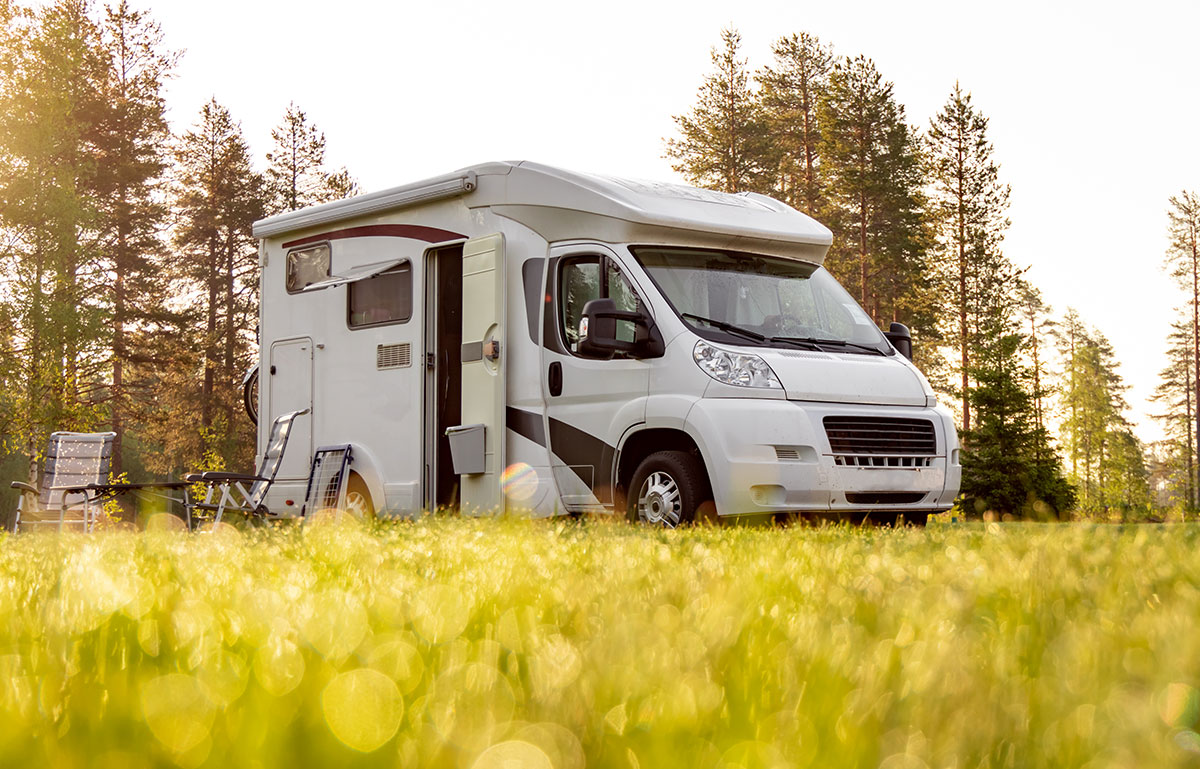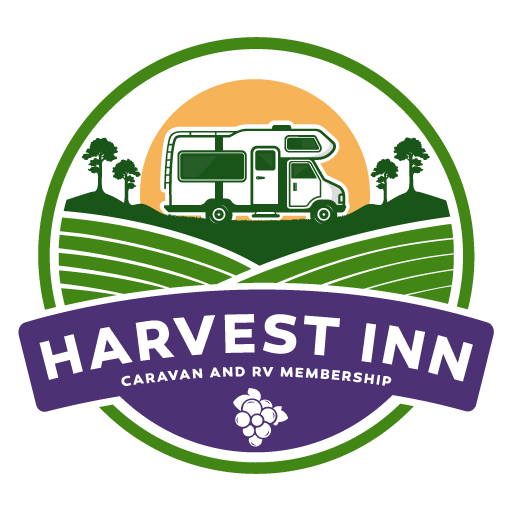How’s that serenity? From tropical rainforests to dramatic coastlines, and white sandy beaches to the red desert centre, there are very few places in the world that have been blessed with as much stunningly diverse nature as it’s found all throughout Australia. And with such a relatively small population compared with the total landmass of the country, there’s plenty of opportunities for free camping.
What is free camping?
The best things in life
are always free, and as the name suggests, free camping won’t cost you a thing
(for parking up, at least). Also known as wild or freedom camping, free camping
is a remarkable way of unplugging from the hustle and bustle of city life and
exploring everything this wide, brown land has on offer, especially if you’re a
traveller on a budget. But what exactly is it?
Free camping in Australia is when you can legally
stay overnight on public land or campsites that have been specially designated
to be absolutely free of charge. This means you can essentially enjoy some
off-grid camping on a getaway that won’t eat into your savings.
With free camping, you can save some serious cash
on accommodation costs when road tripping around Australia, especially if you
plan to cover a lot of ground. That means you’ll have more money left in the
kitty to spend on camping essentials such as beer and barbeques. It’s no wonder
that free camping has become almost like a rite of passage for many Aussies as
they travel the country on both long and short road trips.
Where can you find free camping grounds?
There are plenty of free camping options
available around Australia, most of which are found in quiet, remote, and
low-key locations, often situated just off main roads and national highways. In
fact, the vast majority of free camping sites have been set up as simple rest
areas where travellers can pull over and take a break during long drives.
In order to find the very best free campgrounds
around Australia, you’re going to have to get creative. That’s a big part of
what free camping is all about… the pure joy of being the only travellers at a
tranquil campground with an amazing location and a stunning view. And knowing
that you’re staying somewhere that not many know about is always worth some
extra searching.
Start by checking online with Google Maps,
National Park websites, and RV forums before you leave, and then go into local
tourist offices, Visitor Information Centres, and keep your eyes peeled for any
free campground signs when you’re out on the road. Sometimes you’ll have to drive around each new town for a
while before you find that perfect camping spot.
Finally, the best free camping spots are found
the old fashioned way, using word of mouth. So, talk with other travellers at
each free campsite you stay in and also have a word with any locals you happen
to meet, and you’ll be sure to learn about some of the lesser-known camping
grounds that are off the beaten track. Chances are that someone you talk to
will have been where you’re heading and know of some ace spots, or is heading
the same direction on the recommendation of other campers.
Expectations vs. reality when free camping
Location Expectations
Free camping might seem as simple as pulling up in your caravan or pitching a tent wherever looks good, but there’s actually a lot more to it compared with staying at a regular campsite.
vs
Location Reality
There are a wide variety of laws regarding camping within each state of Australia which specifically govern where you can and can’t camp. These laws are often quite relaxed in the outback, allowing people to camp pretty much anywhere they want to, provided that they don’t leave anything behind and keep the area tidy. However, the laws are very strict in many other parts of the country, where you will likely be issued with fines if you’re found to be camping illegally. So, when you are deciding on where you’re free camping for the night, always double-check that you’re allowed to camp there.
Fire Expectations
When people think about camping, they most likely picture themselves sitting around a campfire as dusk becomes evening, but you actually need to be very careful when it comes to fires.
vs
Fire Reality
For starters, you won’t even be able to collect firewood if you’re camping in a National Park, so you’ll need to find some elsewhere. Many other free camping sites often have blanket fire bans in place, meaning open fires are not allowed at all – especially during fire season. If you’re staying somewhere open fires are allowed, you should always make sure that they are a controllable size, with plenty of water or a fire extinguisher on standby just in case it does become too large. The last thing anyone wants is to be on the news for causing a major bushfire.
Water Expectations
Because water is an abundant resource in Australia, it will be available at all campgrounds around the country.
vs
Water Reality
The secluded peacefulness of some free camping spots is often because of their remote locations. So, when it comes to water availability, many of these isolated sites will likely be reliant on bores and wells, if they have access to water at all. And there’s nothing more annoying than realising your perfect new campsite has no water after you’ve already settled in for the night. So you should always keep this in mind when heading towards secluded free camping grounds, and bring as much water as you possibly can so that you can stay hydrated. Alternatively, search for free camping grounds that are close to natural water sources like lakes, streams, and rivers, which you can then purify.
Animals Expectations
Some people may expect that their camping experience will be like the best parts of a Disney movie, with animals greeting them with a smile each morning, but this is simply fantasy.
vs
Animals Reality
The reason why the Lindy Chamberlain story is so famous is that dingoes really did take her baby. So, no matter how close or far your free campground is to civilisation, there will often be some dangerous animals lurking nearby. Whenever you’re free camping, make sure that you take the time to research the area before getting there so that you know what animals you should be looking out for. And remember that wherever you set up camp, you should always keep your children close by and never leave food lying around, as both can often attract predators.
Rubbish Expectations
People who have stayed in caravan parks before often assume that every campground will have rubbish bins available.
vs
Rubbish Reality
There’s usually no rubbish bins or rubbish collection services available at free camping sites in Australia, which actually makes a lot of sense as these services cost money. So, because you’re not paying anything to stay at free camping sites, there won’t be any bins which means you have to do the right thing and take all of your rubbish with you when you leave.
Duration Expectations
Some people think that they can pull up to a campsite and stay there indefinitely for as long as they like, but there are often time limits that apply.
vs
Duration Reality
Most free campgrounds will only allow people to camp there for limited amounts of time, which vary wildly between sites. So do your research before you get there or search for signage after you arrive to check how long you’re legally allowed to camp there. Most local councils can and will issue fines to campers breaking these rules, and in some of the more popular places, you’ll need to be extra careful.
Cooking Expectations
Some might expect that free camping sites will have communal barbeques for them to cook meals on, but these locations are quite often far away from access to utilities like electricity.
vs
Cooking Reality
You are going to need some way of cooking your meals at free campgrounds unless you’re planning on surviving on biscuits and dry noodles. As stated previously, fires are sometimes not allowed so you should always carry a small and lightweight stove with you. These are ideal because they don’t take up much room, but they still allow you to cook most food pretty safely without requiring an open fire. Just bring some dehydrated camping food and some simple basics, boil some water and you’ll always have a meal at the ready.
Pet Expectations
While many free camping sites are pet friendly, not all of them are.
vs
Pet Reality
While pets are generally not permitted to stay with you when free camping in National Parks, there are still a lot of other free camping sites that will welcome you and your furry family members. In fact, allowing your fluffy little companion to join you is just another one of the big advantages of free camping over staying in caravan or holiday parks. Just remember that this is a privilege, not a right, so always clean up after them and ensure you keep them on a short leash, especially when other families or people with their own animals are also staying in the area.
Weather Expectations
Always assuming that your days will be sunny, and the weather will be perfect is always a mistake, as things can often get bad quickly.
vs
Weather reality
Australia is well known for its extremes when it comes to weather, from summer storms to cyclonic winds. That’s why you always need to be prepared for the weather to change at any time. Check forecasts each morning, and make plans to be somewhere safe if it seems like the weather could become particularly bad. And if you haven’t left home yet, you might want to consider postponing your trip until things start looking better.
In the end…
The best part of free camping is that you’re never bound by bookings, check-out times, and other schedules and timetables that often rule so many other holidays. So if you fall in love with a particular campsite, you can always stay another night when local rules allow, or you can pack things up and move on if you’re really not feeling it. You can plan things out as much as you like in advance, or you can tailor your trip each day as you go, leaving a site and arriving at the next whenever you please.
With the freedom to camp inside lush rainforests, next to pristine beaches, and on glorious mountaintops, you have the opportunity to experience the breathtaking nature of Australia in ways that many people never get to see. Free camping like this allows you to really immerse yourself completely in the great Australian outdoors, which should always be a fun and safe experience.
Now that you know what to expect with free camping, you’ll be fully prepared to have an amazing camping experience. Just remember to free camp responsibly and keep it simple by being respectful of your surroundings, follow the rules, and only ever leave your footprints behind.


